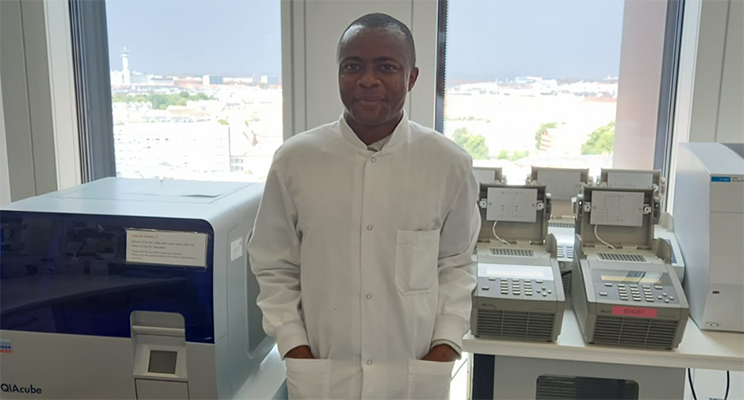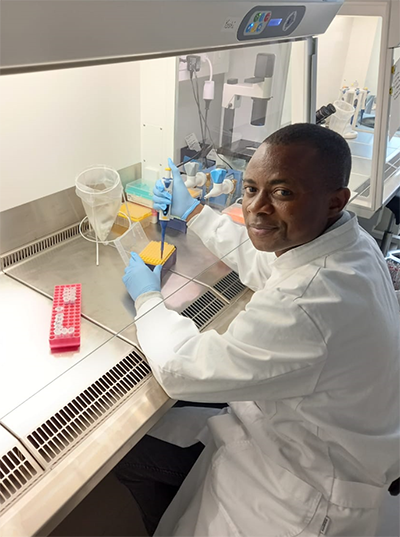Dr Adebanjo Adegbola first fellow to complete EDCTP-AREF Fellowship

Dr Adebanjo Adegbola is the first fellow to successfully complete the full cycle of the joint EDCTP- Africa Research Excellence Fund (AREF) Preparatory Fellowships call (2018). The AREF/EDCTP Preparatory Fellowships target outstanding early-career researchers residing in or wishing to relocate to sub-Saharan Africa, who demonstrate independent scientific thinking and have the potential to deliver locally relevant research with measurable impact and within the scope of the EDCTP2 programme.
Dr Adegbola’s fellowship involved a training placement at a host laboratory (Denmark), followed by a reintegration phase at his home organisation in Nigeria (which required the hosting of a skills transfer workshop for his peers). Despite the delays and challenges of COVID-19, Dr Adegbola has successfully concluded all aspects of his fellowship and has kindly shared his personal account of his experience:
“On 20 December 2019, I was exceptionally happy to know that my application for the Preparatory Fellowship had been favourably evaluated. My joy knew no bounds considering the uniqueness and high-impact research outputs of the group I proposed to visit at the Centre for Medical Parasitology at the University of Copenhagen. However, the COVID-19 pandemic postponed the commencement of the fellowship and after a delay of nine months I was able to begin my placement period in May 2021.
Despite these troublesome times, the visit proved to be both successful and beneficial. After a five-day mandatory self-isolation at the Danish Fellowship Centre, Fredriksberg and a repeated negative PCR test, I was able to meet my host, Dr Michael Alifrangis, at the Maersk Tower, an innovative architectural piece where world-class health research groups are housed. My host and his group gave their best to make the visit enjoyable and worthwhile. I was exposed to state-of-the-art molecular biology, including next-generation sequencing (NGS) facilities where as a team, provided social gathering, scientific and technical support throughout laboratory activities. The visit has enhanced my scope of influence in research and provided me with the opportunity to have better personal reflections and future perspectives. It has helped to further explore the use of molecular tools in malaria research, genomic epidemiologic studies and other funding opportunities with my host and Prof. Cally Roper at the London School of Hygiene and Tropical Medicine (LSHTM).
During the reintegration phase, I organised a two-day training workshop (6 and 7 December 2021) on basic molecular biology techniques, including DNA extraction, various PCR methods and gel electrophoresis for early-career academics and graduate students selected across four institutions in Nigeria. It is worth noting a statement from one of the participants that “during the laboratory workshop, I was able to get well involved in the process by handling the equipment and carrying out the procedure. I believe I would be able to replicate it as and when needed.
The trip would not have been a success without support, privately by my wife, Ibitola Adegbola, and professionally, by my sponsor, Prof. O.O. Bolaji. Secondly, my main host in Copenhagen, Dr Michael Alifrangis trusted me and granted me full access to his laboratory. I am grateful for the trust, as we did not meet in person before coming to Copenhagen. Besides, dear Dr Hasson, the PCR guru, thank you for your warm welcome and adequate provision to meet my needs while in Copenhagen. Dr Michelle Singh of EDCTP, my project officer, thank you for your nice comments and excellent guidance from the inception of the fellowship to the end. Finally, to EDCTP and its team of experts, I am grateful (Tak skal du have!).”

